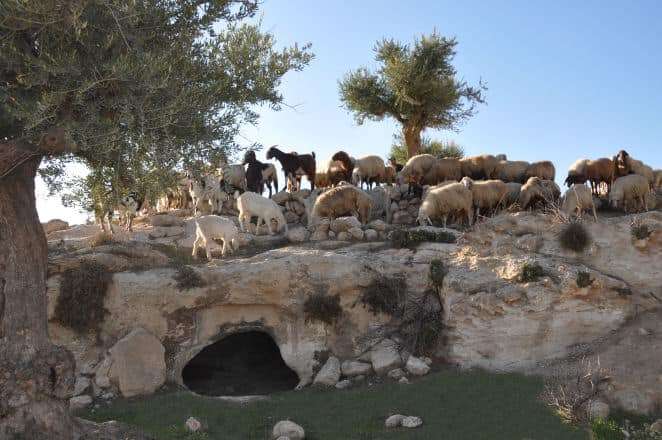11,803 total views
Homily for Friday of the 10th Week in Ortdinary Time, 14 June 2024, 1 Kings 19; Mt 5:27-32

Like I told you yesterday, the drama in the life and mission of the prophet Elijah—which has been read from the first book of Kings for the past few days now—continues today with chapter 19. And the setting is in a cave at Mount Horeb, otherwise called Mount Sinai. I imagine myself being in the position of the prophet Elijah and reacting to God’s tall order to “GO OUTSIDE!” What did he mean? Was he asking me to allow myself to be arrested by the soldiers of the king and his wicked wife, Queen Jezebel? Here’s what I would said in answer to God, if he asked me, “What are you doing here? “
I’d say: “Lord, you know why I am here. I am taking refuge in the shelter of your holy cave where Moses first met you. Why are you telling me now to go outside? Don’t you see what’s going on out there? A storm has just passed by; boulders have rolled down the hills because of a landslide triggered by an earthquake. At the moment there’s a brush fire razing down the whole forest. And you tell me to go outside? Are you not my Shepherd anymore? Do you no longer care anymore about me, a member of your flock whom you used to lead in verdant pastures. Here I am, about to be devoured by the false shepherds who rule over our people and who have forsaken you! Protect me Lord, my Shepherd, let me stay in the comfort of this cave, safely guarded by your rod and your staff.”
But I also imagine God saying, “Why inside, Elijah? The safety of this cave is not your place. My sheep are outside, dispersed. They have been taken over by false shepherds who are more violent than lions and bears. Many of them are hungry, injured and lost. Will you please shepherd them again for me? They need to hear my voice through you. Yes, I once appeared to Moses inside this very cave. I allowed him to have a glimpse of the fire burning in my heart for my hapless people who were being oppressed as slaves in Egypt. He was like you when I first met him, running away from trouble, sheltering in the comfort zone of Midian, so I led him inside this cave. After revealing my pain to him, I asked him to go out, back to Egypt, to set my people free. I asked him bring them to this cave, and to stand guard outside by its mouth, to be the gate himself, to keep my people safe and secure.
Our first reading today makes me understand what Jesus meant in John 10, in that second half of the passage about the Good Shepherd, where he switches images, from being a “Good Shepherd” to being the “Gate for the sheep”. We are told that caves were the places of refuge where shepherds kept their sheep from storms, from landslides caused by earthquakes, and from brush fires. There, a shepherd would guard his sheep with his very life by setting himself outside, by the mouth of the cave with a clear message to predators: “Dare to come near my sheep, all right, but over my dead body.”
This must be what Pope Francis is trying to say to the Church: to stop behaving like a mindless herd or a flock to be protected if we truly take part in the life and mission of our Good Shepherd. His message to us is the same: “Stop staying inside the comfort zone of your parish churches and institutions; go out! Go outside and there, after having struggled with the typhoon and the earthquake and the fire, my spirit will come upon you like a soft breeze to restore your strength and your courage, so that with Christ you can stand by the door and serve as the very gateway to those you have secured inside the cave, to be ready to lay down your life for the last, the least and the lost, the ones for whom my heart is burning with compassion.
















